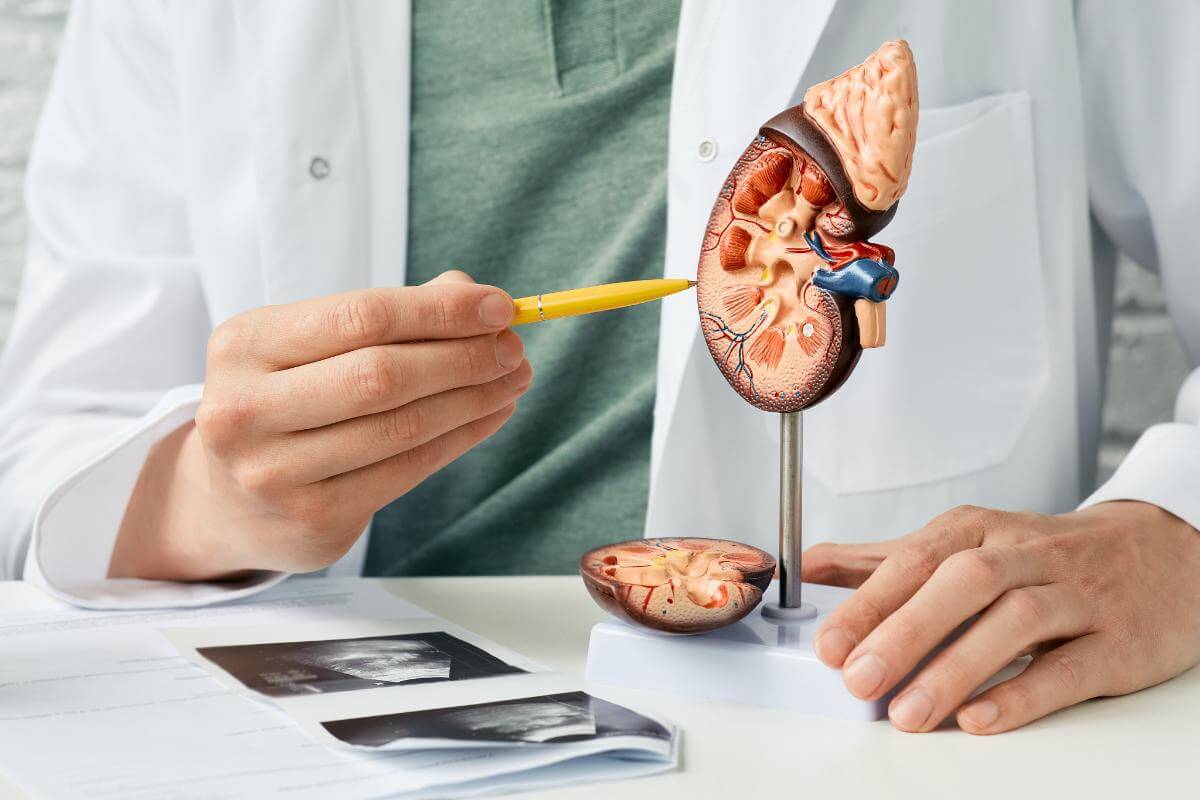Like any medical specialist, a general urologist has expert training in conditions that affect certain areas of the body. Both men and women can benefit from urology, and patients who need operations can receive safe, comfortable anesthesia for urology services. Whether you want to find a general urologist in Virginia for a medical concern or you’re anticipating a urology procedure, it’s important to know what to look for in a care provider.
What Is a General Urologist?
Urologists are physicians who specialize in the urinary or genitourinary tract, as well as the male reproductive system. This specialty includes areas of the body like:
- Kidneys
- The bladder
- Adrenal glands
- The urethra
- Male reproductive organs
Their expertise includes medical and surgical treatment of diseases affecting the urinary tract, such as kidney stones, urinary tract infections, and certain cancers like prostate cancer. Since the male reproductive and urinary systems are connected, urologists are also trained in male fertility and sexual health issues. However, both men and women can find a general urologist in Virginia. Everyone can be affected by urinary and genital tract conditions, regardless of gender.
Finding a General Urologist in Virginia
Many patients find a general urologist through a referral from their primary care physician. Your physician has a strong knowledge of your unique medical needs and can point you in the direction of the right specialist. You can also contact your health insurance provider to see which general urologists accept your health plan.
Look for a Urologist that Allows Anesthesia
Urologists in Virginia should also be board-certified by the American Board of Medical Specialties (ABMS) and/or the American Board of Urology (ABU). Certification or accreditation means the doctor has gone through several years of specialized urology training and has the expertise to treat multiple urology conditions. You may also want to find a urologist who has experience treating patients with your particular medical needs or patients of your gender. Some urologists have a special focus on men’s, women’s, or children’s health, while others may focus on treating certain diseases.
How Urologists in Virginia Help You Stay Healthy
Patients often find a general urologist in Virginia if they notice symptoms of a urinary tract or reproductive condition, or if they’ve been diagnosed with an illness that requires urology expertise. Primary care physicians may diagnose these health issues in routine screenings and refer patients to a urologist for further examination.
General urologists can treat a range of conditions like:
- Mild and severe urinary tract problems
- Pediatric urology issues
- Kidney stones
- Kidney disease
- Enlarged prostate
- Erectile dysfunction
- Incontinence
- Bladder prolapse
- Bladder cancer
- Kidney cancer
- Prostate cancer
- Testicular cancer
Early detection is crucial to treat many of these conditions successfully, so it’s smart to see a general urologist as soon as possible. A urologist can also work with you long-term since some illnesses, like kidney stones, can recur.
What Procedures Can General Urologists Perform?
When you visit a general urologist, they’ll perform a physical exam and ask about your health history. Blood work and imaging tests, like ultrasounds or MRIs, may also help your urologist get a clearer picture of your health. Depending on your diagnosis, the urologist might recommend a medical procedure or surgery. In many cases, the entire procedure, including anesthesia for urology services, can be performed in the urologist’s office without an extra trip to a hospital or surgical center. Common urology tests and operations include:
Cystoscopy
During a cystoscopy, a camera is inserted inside the body to take a close look at your bladder and urethra
Prostate Biopsy
In a prostate biopsy, a tissue sample is taken from the prostate to check for cancer.
Vasectomy
This tube-cutting procedure prevents reproduction in men.
Additional urological procedures include:
- Kidney removal or kidney transplants
- Kidney stone removal
- Prostate, testicular, or bladder surgery to remove tumors
- Circumcisions
Some of these procedures are more complex than others. If you require anesthesia for urology services, an expert physician anesthesiologist will ensure you remain safe, comfortable, and pain-free the entire time.
Anesthesia for Urology Services with SleepGuardian
The type of anesthesia you receive is tailored to your health needs and the nature of the procedure. Anesthesia for urology services may be as simple as local or regional sedation, which numbs a certain area of the body without making you unconscious. A local anesthetic delivered to the prostate or bladder, for example, keeps you from feeling pain during a urology exam, though you still may feel some pressure.
More involved surgical procedures might require general anesthesia, which keeps you unconscious throughout the procedure. Experienced physician anesthesiologists are standing by the entire time to monitor your vital signs, while the urologist focuses on delivering great results.
Urology Procedures Are Easier with Anesthesia
No matter which kind of anesthesia you need for urology services, a skilled, compassionate anesthesiologist is essential. SleepGuardian works with many urologists in Virginia to administer in-office anesthesia, providing hospital-level care in an office setting. Urology is an essential aspect of health, and our team is dedicated to making the patient experience a safe and positive one. Contact us at (866) 256-1146 to learn more.







